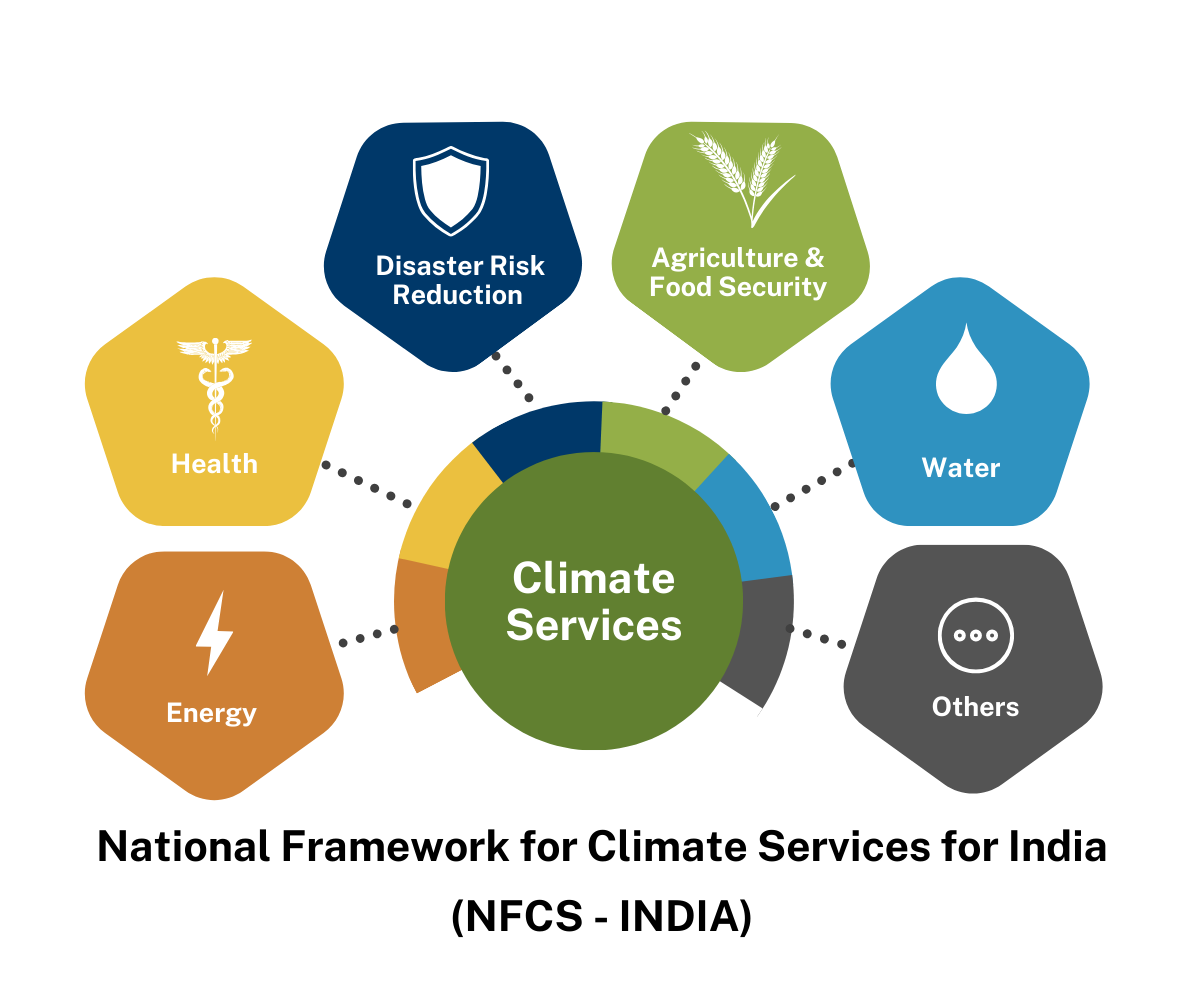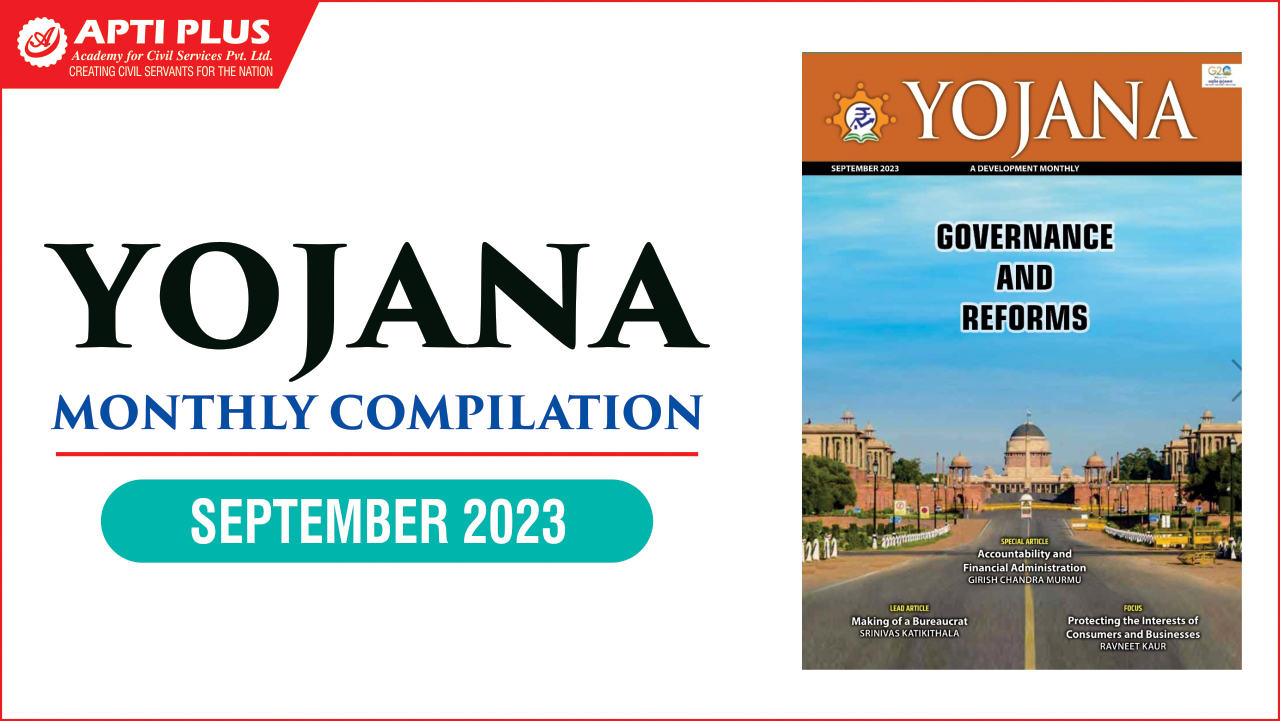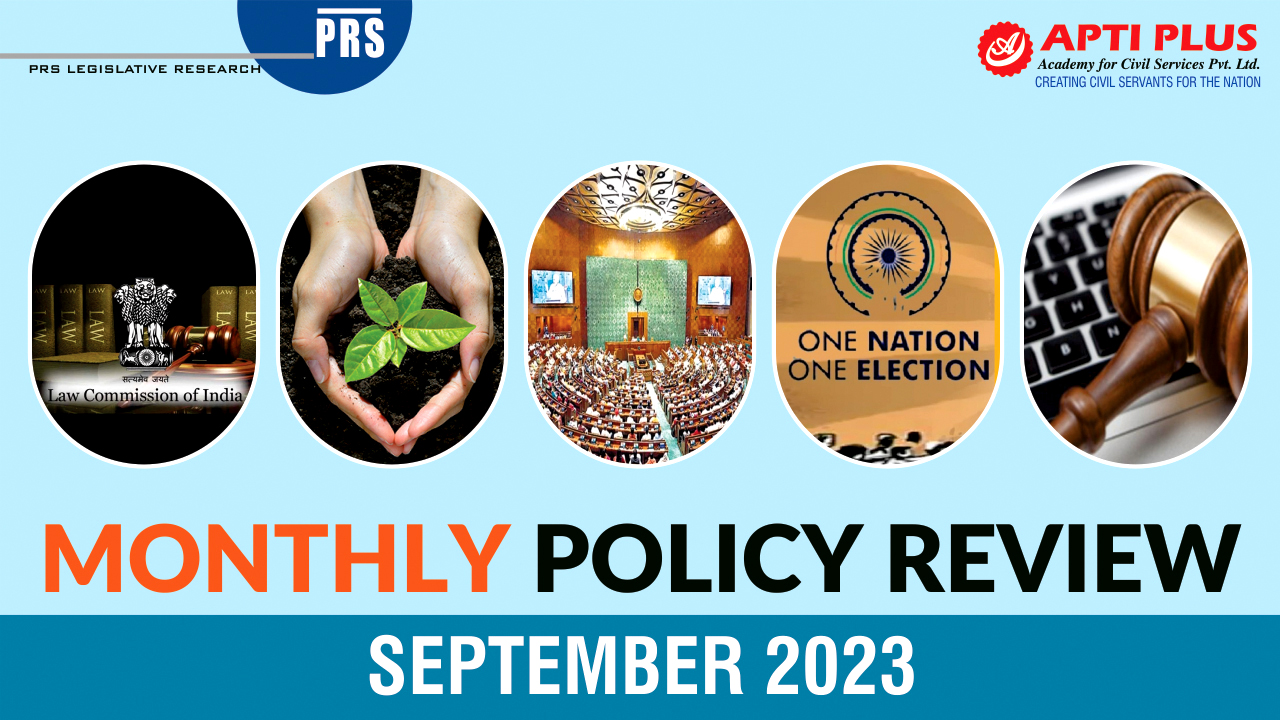PERSPECTIVE: National Framework for Climate Services

Disclaimer: Copyright infringement not intended.
Context
- India is embarking on a major program to launch its maiden national-level framework towards providing climate services and information.
Details:
- The National Framework for Climate Services which is NFCS will be spearheaded by the India Met Department. NFCS is based on the Global Framework for Climate Services.
- The Global Framework for Climate Services is a partnership of governments and organizations at a global level, for the production and better usage of climate information and services.
- It envisions bringing a seamless working platform for users of climate information and services and helping decide and mitigate climate risks for key sectors like agriculture, energy, disaster management, health, and water.

INTRODUCTION:
- India is embarking on a major program to launch its maiden national-level framework. The world is providing climate services and information.
- The national framework for climate services, which is NFCS, will be spearheaded by the Indian Med Department.
- NFCS is based on the global framework for climate services. The global framework for climate services is a partnership of governments and organizations at a global level for the production and better usage of climate information and services.
- It envisions bringing a seamless working platform for users of climate information and services and helping decide and mitigate climate race for key sectors like agriculture, energy, disaster management, health, and water.
| India's National Framework for Climate Services, led by the India Meteorological Department (IMD), aims to establish a comprehensive platform for climate information users. |
What is a National Framework for Climate Services?
- The National Framework for Climate Services (NFCS) in India is a pioneering initiative led by the India Meteorological Department (IMD) to provide climate services and information to various sectors such as agriculture, energy, disaster management, health, and water.
- It is based on the Global Framework for Climate Services (GFCS), which is a collaborative effort among governments and organizations worldwide to enhance the production and utilization of climate information and services.
|
Global Framework for Climate Services (GFCS)
- The Global Framework for Climate Services (GFCS) is a significant initiative established to enhance the production and utilization of climate information and services worldwide.
- It was announced during the third World Climate Conference in 2009, held in Geneva. It is primarily led by National Meteorological and Hydrological Services (NMHS) in individual nations.
- It operates as a global partnership involving governments and organizations. Its primary objective is to facilitate collaboration between researchers and users of climate information and services. The goal is to enable informed and actionable decision-making for long-term improvements related to climate change.
- It aims to produce high-quality data from national and international databases concerning crucial weather parameters like temperature, rainfall, wind, soil moisture, and ocean conditions.
- It creates long-term historical averages of these parameters, along with maps, risk and vulnerability analyses, assessments, and long-term projections and scenarios.
GFCS operates through five major components:
- Observations and Monitoring: Gathering data from various sources to monitor climate-related parameters.
- Research: Conducts scientific research to better understand climate patterns and phenomena.
- Modelling and Prediction: Utilizes models to predict future climate patterns based on current and historical data.
- Climate Services Information System: Develops systems to store and manage climate-related information efficiently.
- User Interface Platform and Capacity Building: Provides a platform for users to access climate information and offers training and capacity-building programs.
GFCS focuses its efforts on specific sectors, including:
- Agriculture and Food Security: Providing climate information to aid agricultural planning and food security initiatives.
- Energy: Assisting the energy sector in adapting to climate-related challenges and optimizing resources.
- Health: Offering climate data to help in health-related decision-making and preparedness for climate-related health risks.
- Water: Managing water resources effectively by providing information on precipitation patterns and water availability.
- Disaster Risk Reduction: Assisting in disaster preparedness and risk reduction by providing relevant climate data and predictions.
|
Key Features of the National Framework for Climate Services (NFCS)
Seamless Working Platform:
- NFCS aims to create a seamless working platform that facilitates the smooth flow of climate-related information and services. This platform ensures that climate data, forecasts, and analyses are readily accessible to users, enabling them to make informed decisions and take appropriate actions.
Targeted Sectors:
- NFCS focuses on several key sectors critical to the Indian economy and society, including agriculture, energy, disaster management, health, and water resources. By concentrating on these sectors, NFCS aims to help these industries mitigate climate risks effectively.
- For example, in agriculture, climate services can assist farmers in making planting and irrigation decisions based on weather patterns and climate projections.
Customization:
- Unlike the Global Framework for Climate Services (GFCS), NFCS is tailored to address India's specific weather patterns and the unique needs of its diverse stakeholders. This customization ensures that the climate information is relevant, accurate, and actionable for the Indian context.
- Understanding India's distinct climate challenges allows NFCS to offer targeted solutions to various regions within the country.
Nodal Agency:
- The IMD serves as the nodal agency responsible for formulating and implementing the NFCS in India. As a trusted and established meteorological organization, IMD leverages its expertise and infrastructure to gather, analyze, and disseminate climate-related information. This central coordination ensures a cohesive approach to climate services implementation across different sectors.
Expansion and Adaptability:
- NFCS is designed to be adaptable and responsive to evolving needs. It allows for the incorporation of additional sectors such as transport and tourism based on their relevance and the emerging challenges posed by climate change. This adaptability ensures that the framework remains relevant in the face of changing climate patterns and societal demands.
Challenges in NFCS Implementation:
- Data Gaps and Quality: Inaccurate or insufficient climate data hampers the effectiveness of NFCS. Addressing data gaps and ensuring data quality is essential for reliable climate services.
- Technological Infrastructure: Outdated technology and inadequate infrastructure can hinder data collection, analysis, and dissemination. Investing in modern technology is crucial for enhancing the efficiency of NFCS.
- Capacity Building: Building the capacity of professionals and stakeholders to interpret and use climate data effectively is a challenge. Training programs and workshops are necessary for skill development.
- Funding and Resources: Adequate funding is essential for the successful implementation of NFCS. Limited financial resources and competing priorities can pose challenges in resource allocation.
- Policy Integration: Integrating climate services into policies and decision-making processes across sectors is complex. Coordinating efforts among various governmental departments is necessary for seamless integration.
- Community Engagement: Ensuring that climate information reaches local communities, especially in rural areas, and is understandable and actionable is a challenge. Effective communication strategies are needed.
.jpg)
Way Forward:
Strengthen Data Collection:
- Invest in expanding weather observation stations, satellite technology, and advanced climate modeling. Collaborate with research institutions for data validation and quality assurance.
Enhance Technological Infrastructure:
- Upgrade technological systems for data analysis and dissemination. Implement cloud-based solutions and modern data analytics tools for the efficient processing of large datasets.
Capacity Building:
- Conduct regular training programs and workshops for meteorologists, policymakers, and sector-specific professionals. Enhance their skills in utilizing climate data for decision-making.
Increase Public Awareness:
- Launch public awareness campaigns to educate communities about climate change and the availability of climate services. Empower citizens to understand and use climate information for their benefit.
Policy Advocacy:
- Work closely with policymakers to integrate climate services into national and regional policies. Advocate for the inclusion of climate considerations in development plans and strategies.
International Collaboration:
- Collaborate with other countries and international organizations for knowledge exchange and best practices sharing. Participate in global climate initiatives to leverage expertise and resources.
Innovation and Research:
- Encourage research and innovation in climate modeling, prediction techniques, and data analysis. Support research institutions and startups working on climate-related technologies.
Community Participation:
- Involve local communities in the process. Gather indigenous knowledge and integrate it with scientific data. Engage community leaders and local institutions in climate adaptation efforts.
Regular Evaluation:
- Establish mechanisms for regular evaluation and feedback. Monitor the effectiveness of implemented strategies and make necessary adjustments based on outcomes and challenges faced.

Conclusion
- The NFCS in India is a vital step toward enhancing the country's climate resilience, fostering informed decision-making, and addressing the challenges posed by climate change in various sectors. Its alignment with the global framework and collaboration with key stakeholders highlight its significance in climate services and information dissemination.
CITATIONS:
https://sansadtv.nic.in/show/perspective
https://www.google.com/url?sa=i&url=https%3A%2F%2Fwww.imdpune.gov.in%2FNFCS_India.html&psig=AOvVaw0_-p7DAqC23KchirKea4Hn&ust=1698338184876000&source=images&cd=vfe&opi=89978449&ved=0CBMQjhxqFwoTCJDi-_LQkYIDFQAAAAAdAAAAABAO
https://www.iasgyan.in/daily-current-affairs/national-framework-for-climate-services
https://gfcs.wmo.int/sites/default/files/SA%20NFCS%20FINAL%20DOCUMENT0308.pdf
https://indianexpress.com/article/explained/explained-climate/national-framework-for-climate-services-nfcs-8972568/
https://cdkn.org/sites/default/files/files/Implement-an-Inclusive-National-Framework-for-Climate-Services_Poster-for-Met-Agencies.pdf




